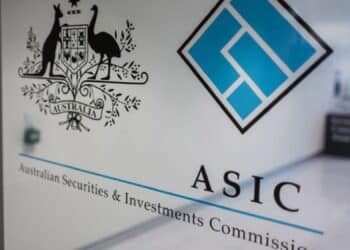<table
The chairman of the Australian Securities and Investments Commission (ASIC) has hinted that the basis for the Corporations Act and ASIC’s role in financial markets may be re-examined.
The Wallis inquiry was established in 1996 to examine the deregulation that had occurred under the Hawke-Keating Government. The report that came out of that inquiry provided the current policy underpinning for the Corporations Act and ASIC’s work, which focuses on disclosure rather than regulation that may restrict the freedom of the markets.
But in a speech to the Australian Financial Counselling and Credit Reform Association, ASIC chairman Tony D’Aloisio said “as the current reform agenda proceeds, the balance reached by Wallis is likely to be revisited”.
Rhetorical questions posed by D’Aloisio included whether or not the balance that had been struck was in fact correct, and whether more could be done to protect retail investors.
He said these questions would need to be weighed against the benefits that come from a free, efficient market. He argues that while regulation can protect consumers, it can also add to the cost of capital.
D’Aloisio said ASIC’s role in relation to these questions was to provide information relating to its experience to Treasury, Government and parliamentary inquiries, in what was ultimately a policy matter for Government.
D’Aloisio said at the centre of the Wallis Report was the view that the “efficiency of the capital markets would be enhanced by the absence of capital backing regulation”, and that these markets only required disclosure, transparency and enforcement of proper market conduct for operation.
D’Aloisio reiterated that ASIC, unlike the Australian Prudential Regulation Authority, is an “oversight and enforcement body”, rather than a prudential authority.
As a result, ASIC will “inevitably” only step into play after a company collapse has occurred.
“We are there, as an oversight body, to see if the law was complied with and, as such, we will arrive ‘at the scene of the accident’ (ie, after the accident) to see who caused it,” D’Aloisio said.
He said ASIC’s powers to “act ahead of time are limited”.
In particular, he pointed to the fact that ASIC does not have the power to “regulate capital adequacy or to prohibit certain business models”.
“Indeed, the underpinning policy behind the legislation (Corporations Act) does not do that,” D’Aloisio said.
Therefore, ASIC was unable to prevent the damage caused by the collapses of numerous financial services companies over recent years, D’Aloisio said.
D’Aloisio said that while the regulator was examining possible breaches of the Corporations Act in some high profile corporate collapses, flawed business models were often largely to blame – an area ASIC does not have the power to act in.





